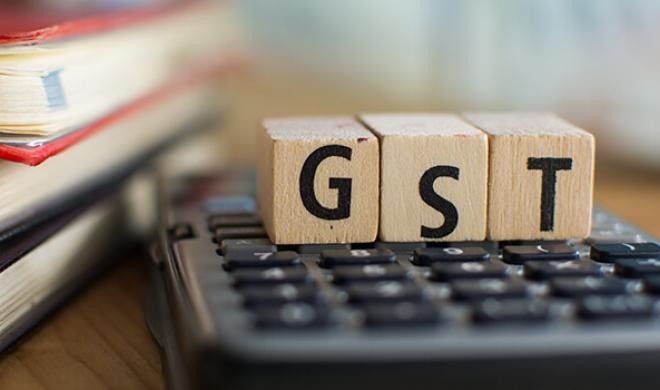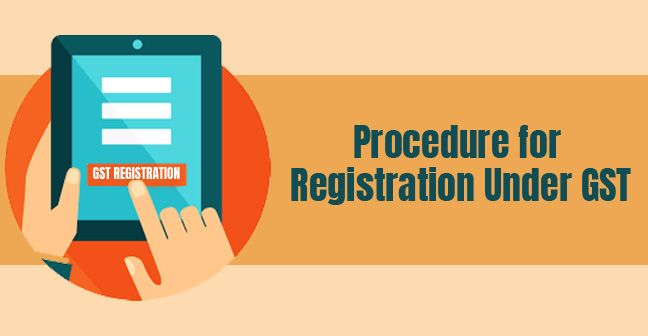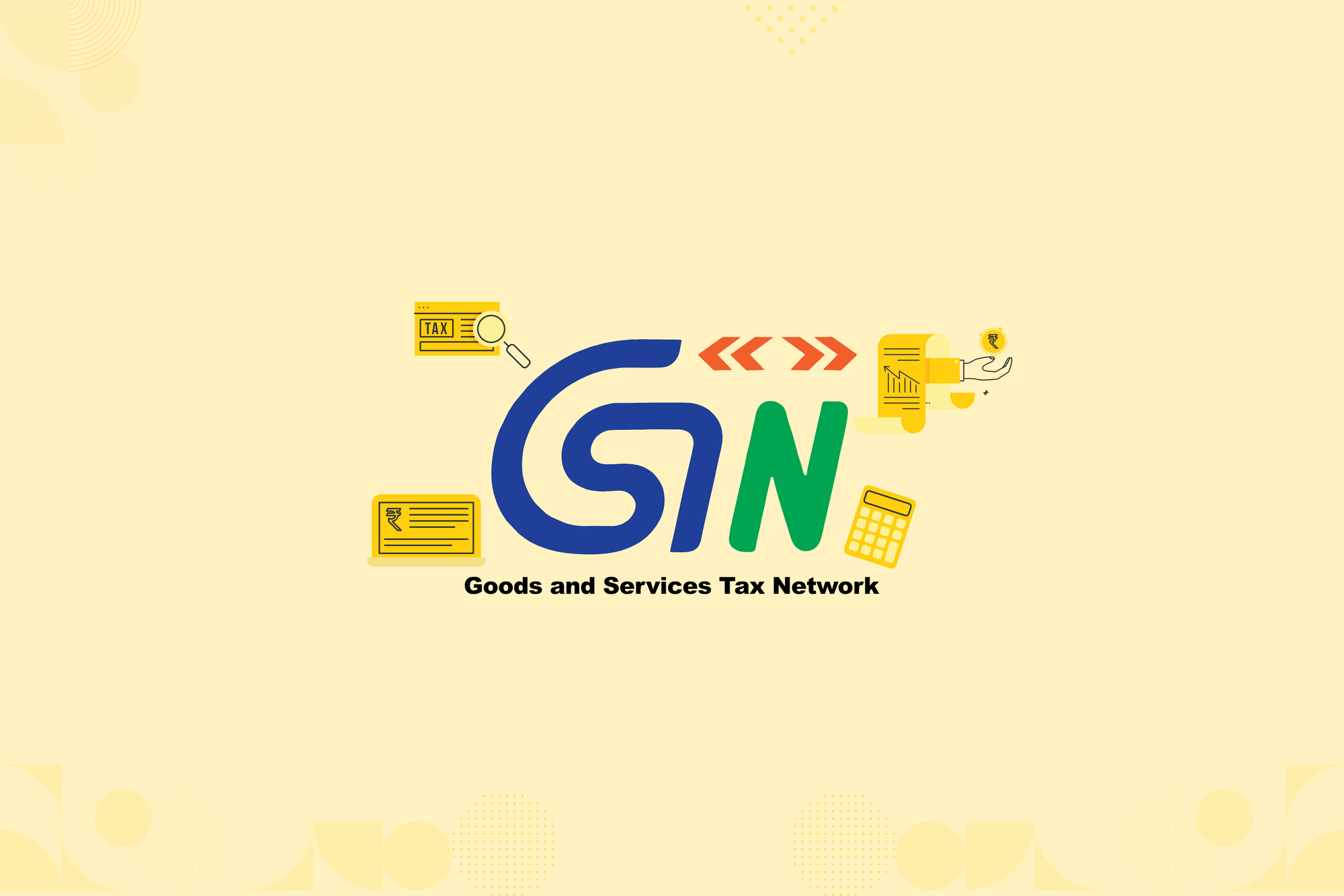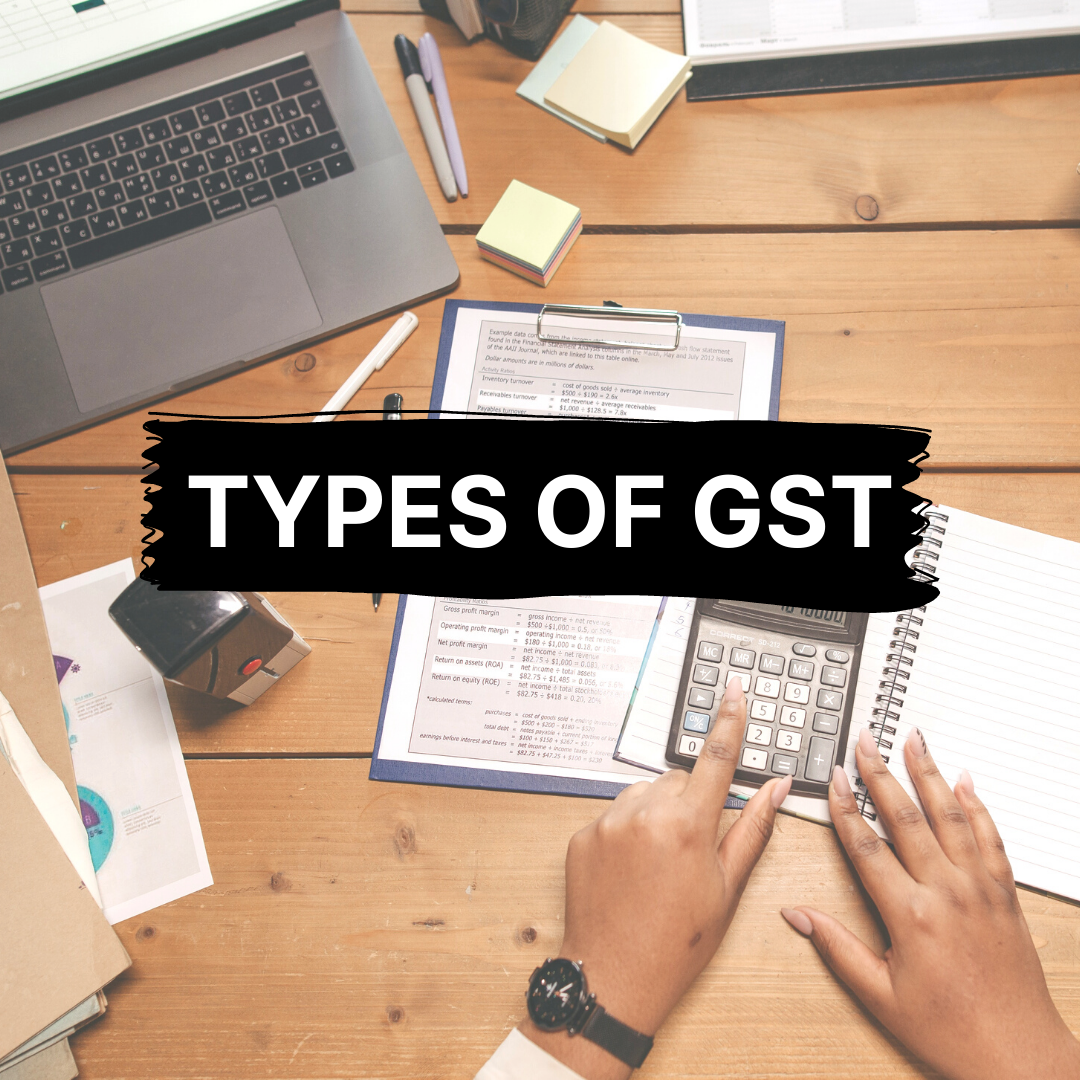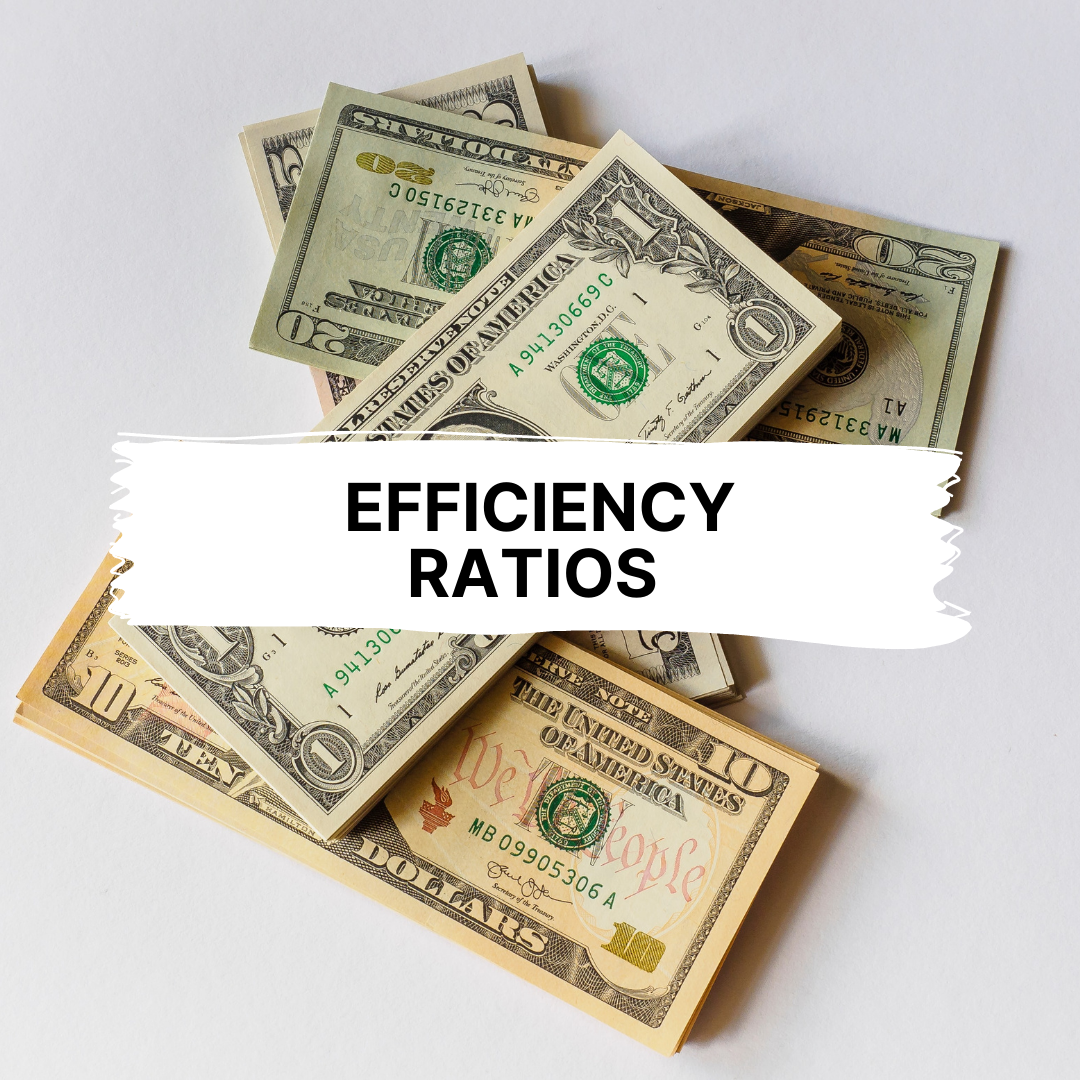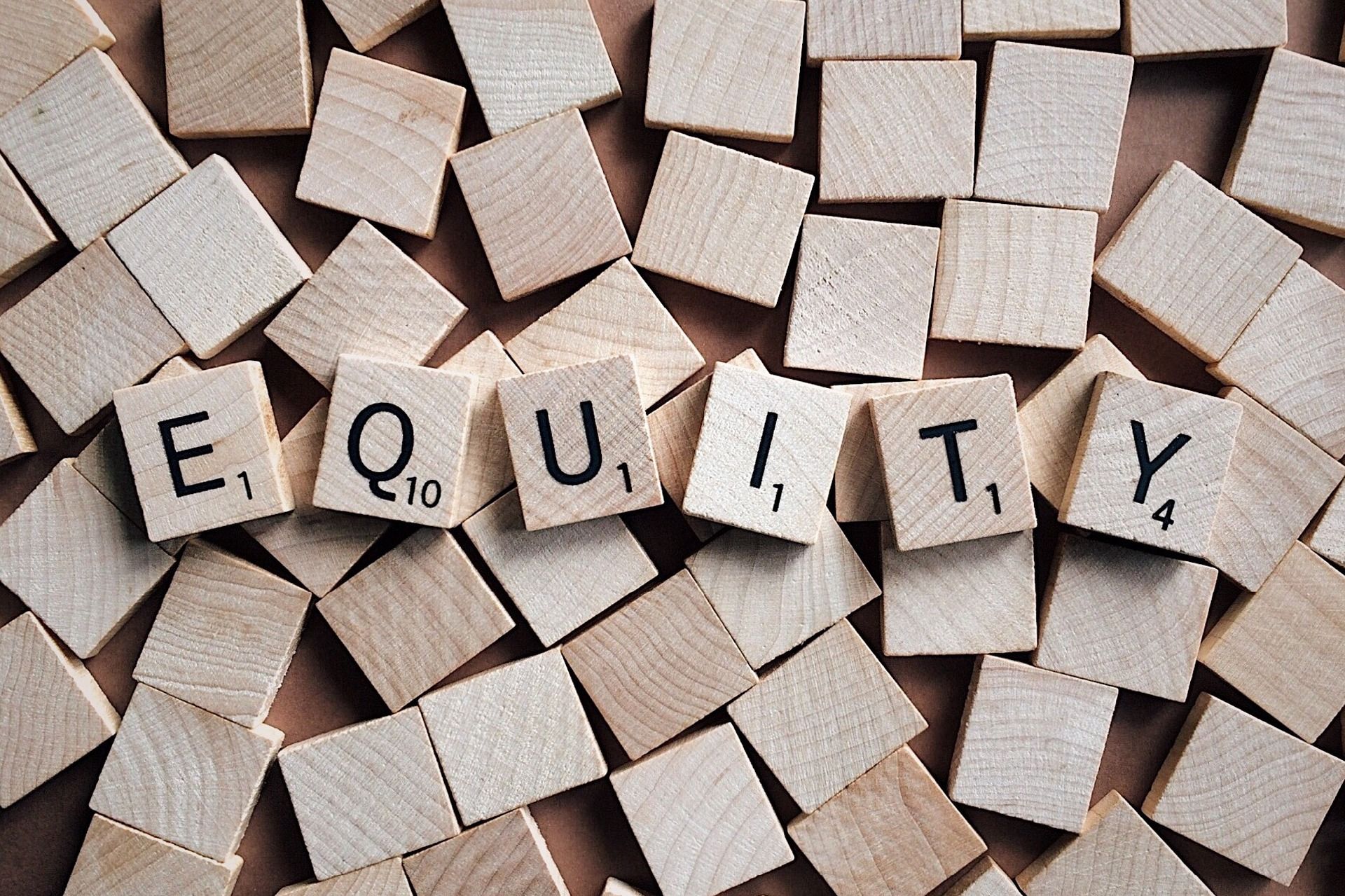Goods and Services Tax, GST is an indirect tax for the entire nation, which makes India a common united market by ensuring indirect taxes are replaced in the country.
Goods and Services Tax (GST) is also known as indirect tax or consumption tax in India on the supply of goods and services. It is a comprehensive, multistage, and also known as destination-based tax. The GST in India is comprehensive because it has subsumed almost all the indirect taxes except a few state taxes.
GST will be imposed at every step in the production process, and a refund will be possible in the various production stages other than the final consumer. It will be collected from the point of consumption and not a point of origin.

Under the one-nation, one-tax regime, a simple 4-fold breakup has been formulated, which allows for both the center and states to levy taxes. GST in India is classified into 4 types to distinguish between union territories, inter-and inter-state supplies and mitigates indirect taxes.
There are Four GST types are:
- Integrated Goods and Services Tax (IGST)
- State Goods and Services Tax (SGST)
- Central Goods and Services Tax (CGST)
- Union Territory Goods and Services Tax (UTGST)
Different Types of GST
|
Types of GST |
Authority which is benefitted |
Priority of Tax Credit use |
Who is it collected by? |
Transactions which are applicable (Goods and Services) |
|
SGST |
State Government |
SGST IGST |
State Government |
Within a single state, i.e. intrastate |
|
CGST |
Central Government |
CGST IGST |
Central Government |
Within a single state, i.e. intrastate |
|
UTGST/UGST |
Union Territory (UT) Government |
UTGST IGST |
Union Territory (UT) Government |
Within a single Union Territory (UT) |
|
IGST |
Central Government and State Government |
IGST CGST SGST |
Central Government |
Between two different states or a state and a Union
Territory, i.e. interstate |
(SGST) The State Goods and Services Tax
The State Goods and Service Tax is defined as one of the two taxes that is imposed on the transactions of goods and services of every state. SGST is levied by State Government of every state and replaces every kind of existing state tax that include Entertainment Tax, Sales Tax, Entry Tax, VAT etc. Under SGST, the State Government can claim the earned revenue.
(CGST) The Central Goods and Services Tax
The Central Goods and Services Tax is referred to as the Central Tax that is levied on transactions of goods and services that can take place within a state. Imposed by the Central Government, the CGST ensures to replace all the other Central taxes inclusive of CST, State Tax, SAD, etc. The prices of goods and services under CGST are charged in accordance with the basic market price.
(UTGST) The Union Territory Goods and Services Tax
The Union Territory Goods and Services Tax is applicable on the Intra UT supply of goods and services. The aim is to impose UTGST to apply a collection of tax to provide benefits as same as SGST. The UTGST is applicable to the five Union Territories namely Damn and Diu, Dadra, Lakshadweep and Nagar Haveli, Chandigarh and Andaman and Nicobar Islands.
(IGST) The Integrated Goods and Services Tax
The Integrated Goods and Services Tax is applied on the interstate transactions of goods and services. IGST is also applicable on the goods that are being imported to distribute among the respective states. The IGST is levied when the movement of goods and services occur from one state to another.
Benefits of GST
The main aim of imposing GST is to improve and simplify the ease of business operations by enhancing the tax compliance, boosting revenue receipts of both the central and state government and accelerating economy growth.
GST makes it easy by making the transparent tax system by imposing on the supply of goods and services. When an item or product is bought, the individual sees the state taxes applicable on the product label and not just the various tax components that are embedded on the product.
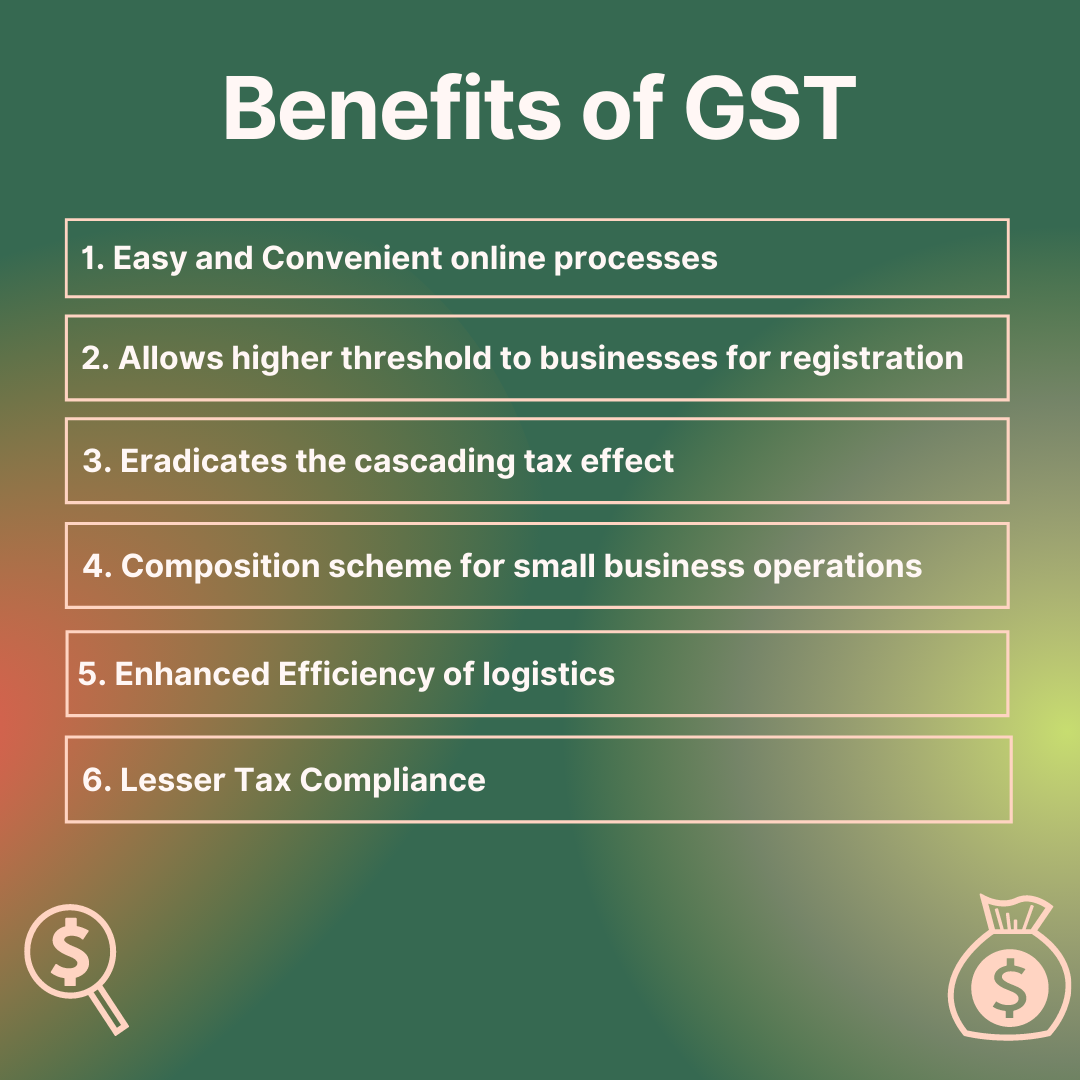
The eradication of cascading of taxes results in lowered tax burden on many goods. The following are the benefits of GST:
- Easy and Convenient online processes
- Allows higher threshold to businesses for registration
- Eradicates the cascading tax effect
- Composition scheme for small business operations
- Enhanced Efficiency of logistics
- Lesser Tax Compliance
Products not a part of GST
Crude oil, Diesel, natural gas, jet fuel and petrol are not involved under the GST. Liquor is usually kept out of GST and hence it would require an amendment under the constitutional provision to be brought into the GST net.
How are decisions taken at the GST Council?
Decisions can't be taken in the Council without the agreement of both the State and the Union Governments. The 75% majority of the weighted votes of the members present and voting are eligible to take a decision.
GST Rates in India
There are four slabs based on goods and services, as proposed by the Government of India:
5% Rate: Under this slab, household items are included like sugar, sweets, spices, coffee, tea, edible oil, coal etc.
12% Rate: Under this slab, processed foods and computers are included. Items like ayurvedic medicines, cheese, ghee, cell phones and fertilizers etc. Services like business-class air tickets, work contracts,and non-ac hotels are also included.
18% Rate: This slab qualifies for soaps,toothpaste, hair oil, etc. as well as industrial and capital goods intermediaries.
28% Rate: This slab involves luxurious items such as luxury cars, consumer durables – Refrigerators, AC etc.
How can Deskera Help You?
Discover how you can combine accounting, finances, inventory, and much more, under one roof with Deskera Books. It's now easier than ever to manage your Journal entries and billings with Deskera. The remarkable features, such as adding products, services, and inventory, will all be available to you from one place.
Experience the ease of implementation of the tool and try it out to get a new perspective on your accounting system.
With the guiding and informative videos on how to manage and set up India GST, you can learn about and familiarize yourself with the process in just a few minutes.
Deskera Books is a time-saving strategy for managing your work contacts, invoicing, bills and expenses. In addition, opening balances can be imported and chart accounts can be created through it.
Deskera Books can handle every aspect of the organization, including inviting colleagues and accountants.
Key Takeaways
- Goods and Services Tax (GST) is known as indirect tax or consumption tax in India on the supply of goods and services.
- There are Four GST types are: Integrated Goods and Services Tax (IGST), State Goods and Services Tax (SGST), Central Goods and Services Tax (CGST) and Union Territory Goods and Services Tax (UTGST)
- GST makes it easy by making the transparent tax system by imposing on the supply of goods and services.
- There are four slabs based on goods and services: 5%, 12%, 18% and 28%
Related Articles
